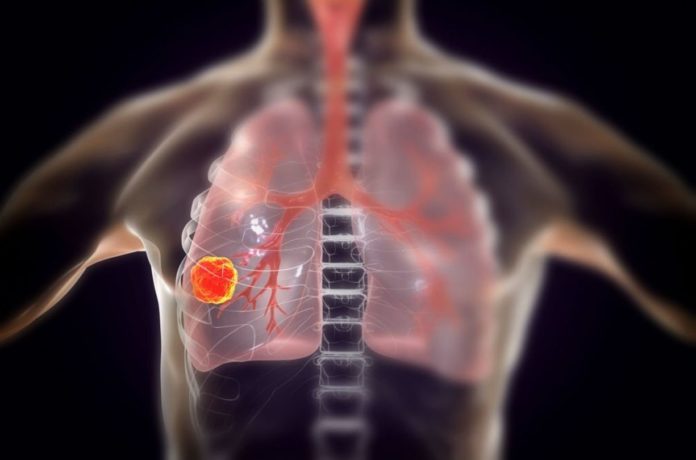The Francis Crick Institute scientists discovered that combining immunotherapy with a medication that prevents a common gene mutation in lung cancer could be a viable new combination therapy for certain types of lung tumors.
Their findings, reported today in Science Advances, could assist in the identification of patients for clinical trials to test the efficacy of this combination therapy in humans.
Each year, around 1.8 million people die from lung cancer, making it the leading cause of cancer-related death worldwide. While immunotherapy is successful for some patients, it is ineffective for the majority.
With barely a quarter of people surviving more than five years following diagnosis, new medicines or innovative combinations of existing drugs are desperately needed.
“In recent years, there has been a lot of attention on whether combining immune checkpoint blockade, a type of immunotherapy, with a KRAS-inhibitor could be effective, says Julian Downward, author and principal group leader and associate research director at the Crick, adding “This inhibitor works by blocking a mutated version of KRAS, a gene that helps control cell growth and death. As the mutation is present in about one third of lung cancer cases, it is a promising therapeutic target.”
In their work, the researchers looked at the impact of administering KRAS inhibitors along with immune checkpoint inhibition to mice. The so-called “immune hot” tumors, which already had a large concentration of immune cells in active state, responded well to the treatment, which effectively controlled the cancer. However, the combo treatment proved ineffective when the immune system was unable to develop a significant reaction.
The first KRAS inhibitor was authorized for use in 2021 in patients of KRASG12C-mutant non-small-cell lung cancer. Additionally, a number of clinical trials are currently being conducted to examine the efficacy of combining this inhibitor with immune checkpoint blockade.
However, the majority of these trials only include patients who have previously received immune checkpoint blockade and have not responded. Their tumors may not be “immune hot,” as indicated by the failure of immunotherapy, and as a result, they are also unlikely to respond to the combination of treatments, according to this study.
To make sure that the potentially successful combination is tried on people most likely to respond, the researchers are urging clinical studies to include patients with “immune hot” tumors.
KRAS inhibitors are very new, therefore there is still much to learn about their optimal use and the safest medicines to mix them with to increase patients’ chances of a longer life.
“Our study is an important part of this, suggesting that combining immune checkpoint blockade with a KRAS-inhibitor,” adds Miriam Molina Arcas, author, “is likely to work in specific cancers. It is crucial this is factored into the design of future clinical trials.”
The scientists also looked into how the KRAS mutation affected the tumor, its surroundings, and the immune system.
They discovered that, in lung cancer, mutant KRAS decreases signals that support immune system activation while enhancing hormone-like chemicals that assist the development of a tumor-supporting environment.
These pro-tumor effects were not present in mice models when the mutant gene was suppressed. For instance, there were more cytotoxic T cells, which kill malignant cells, than immune system-suppressing cells in the tumor environment.
The RAS family of genes, which includes the KRAS gene, is thought to be responsible for roughly 20% of all malignancies, including melanoma, bowel cancer, and pancreatic cancer.
The researchers will continue to examine the significance of this gene family in cancer, including strategies to activate the immune system to remove cancer cells that have evolved resistance to RAS inhibitors.
Image Credit: Getty
You were reading: New Study Shows A Promising Drug Combo Against Lung Cancer
